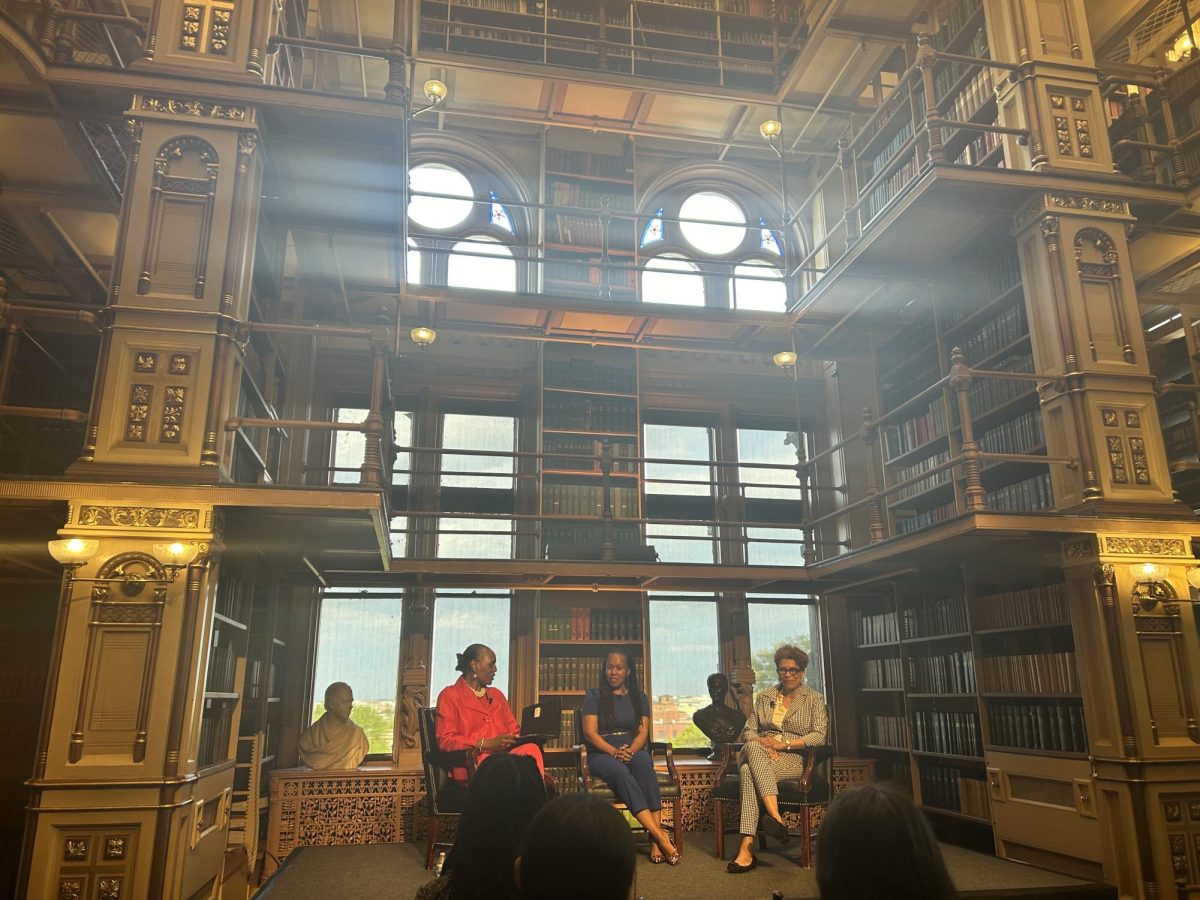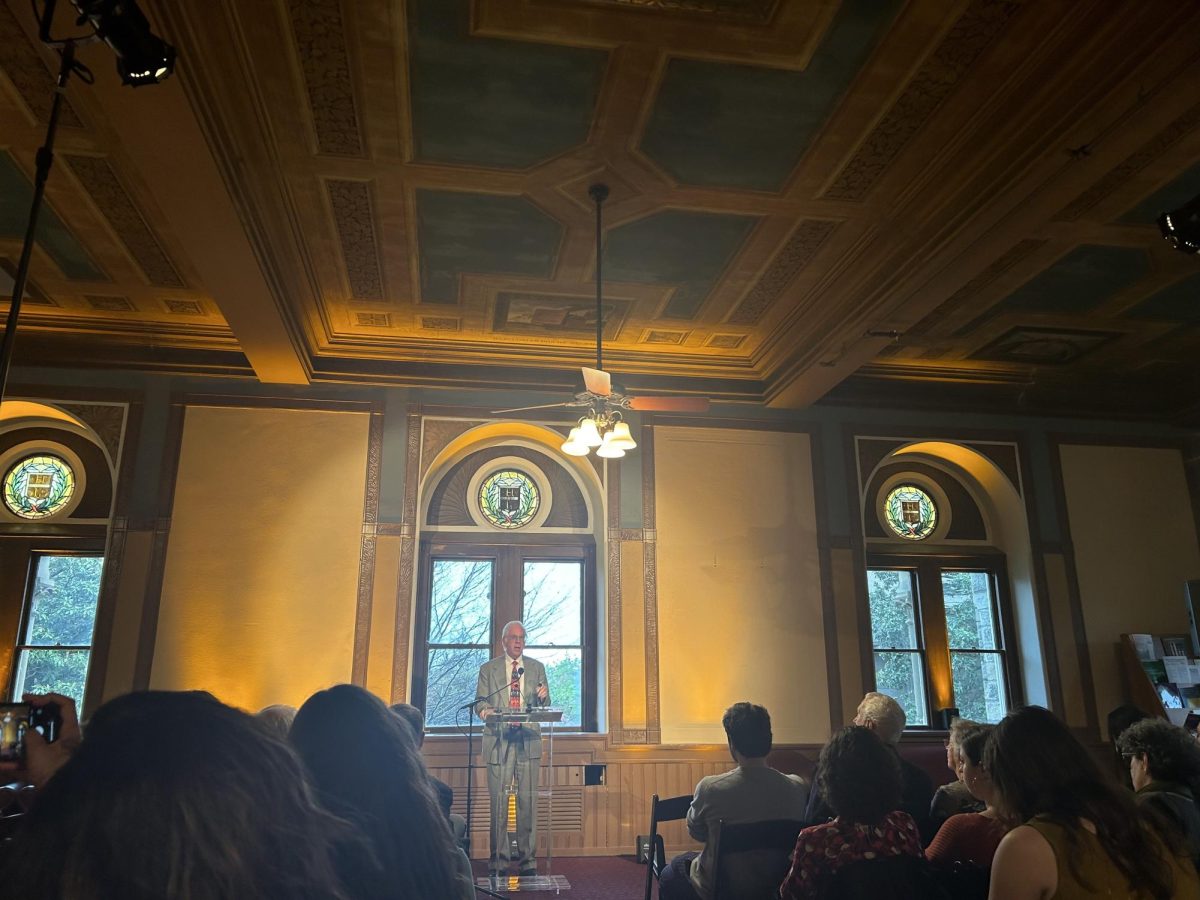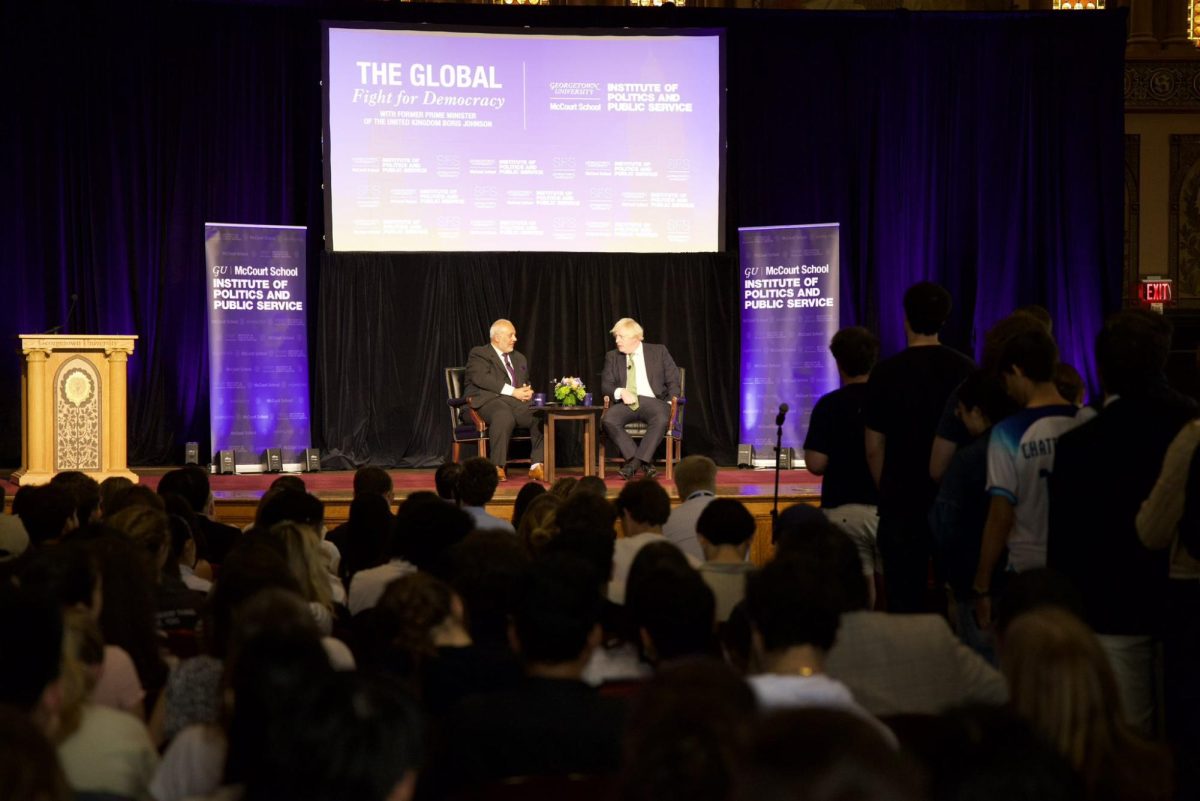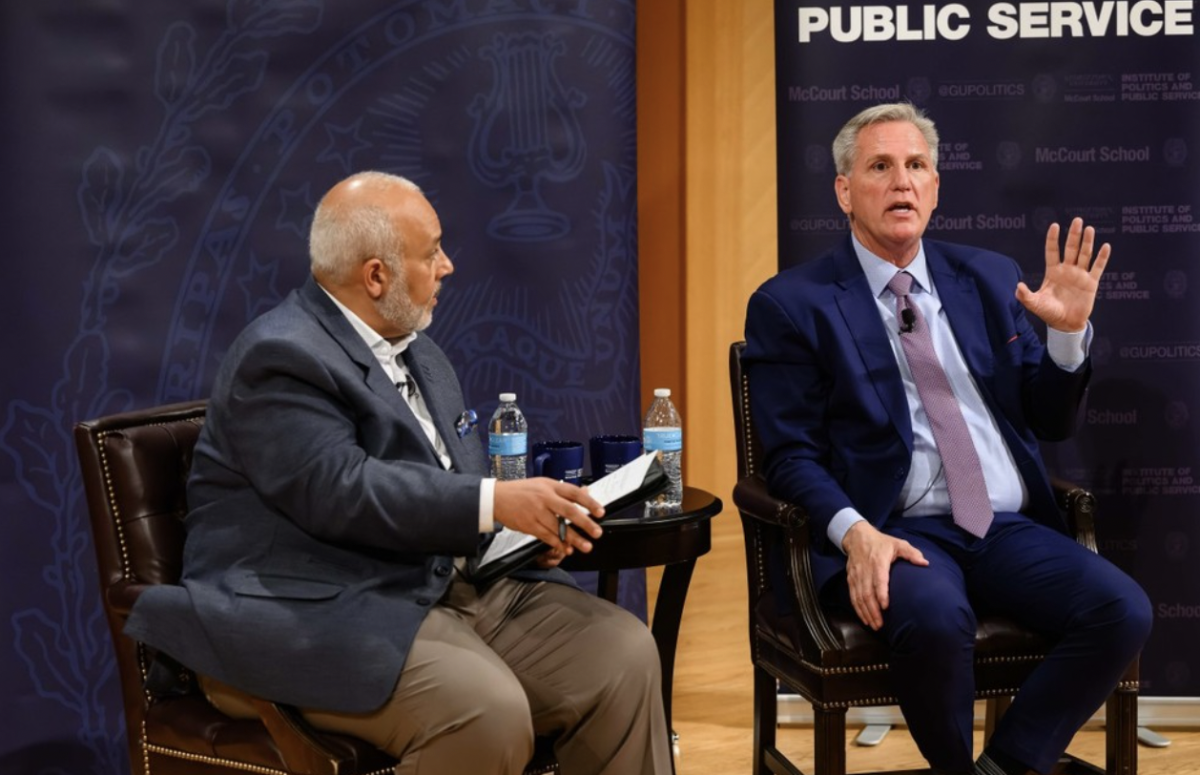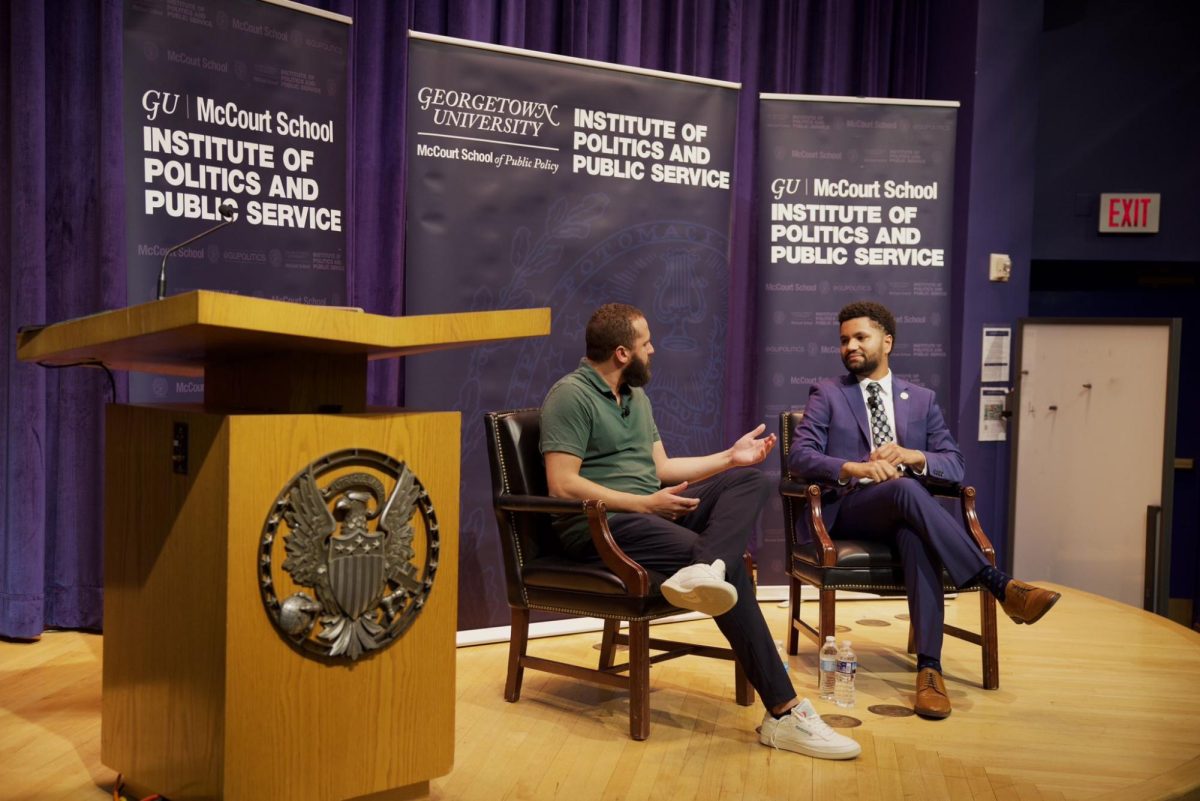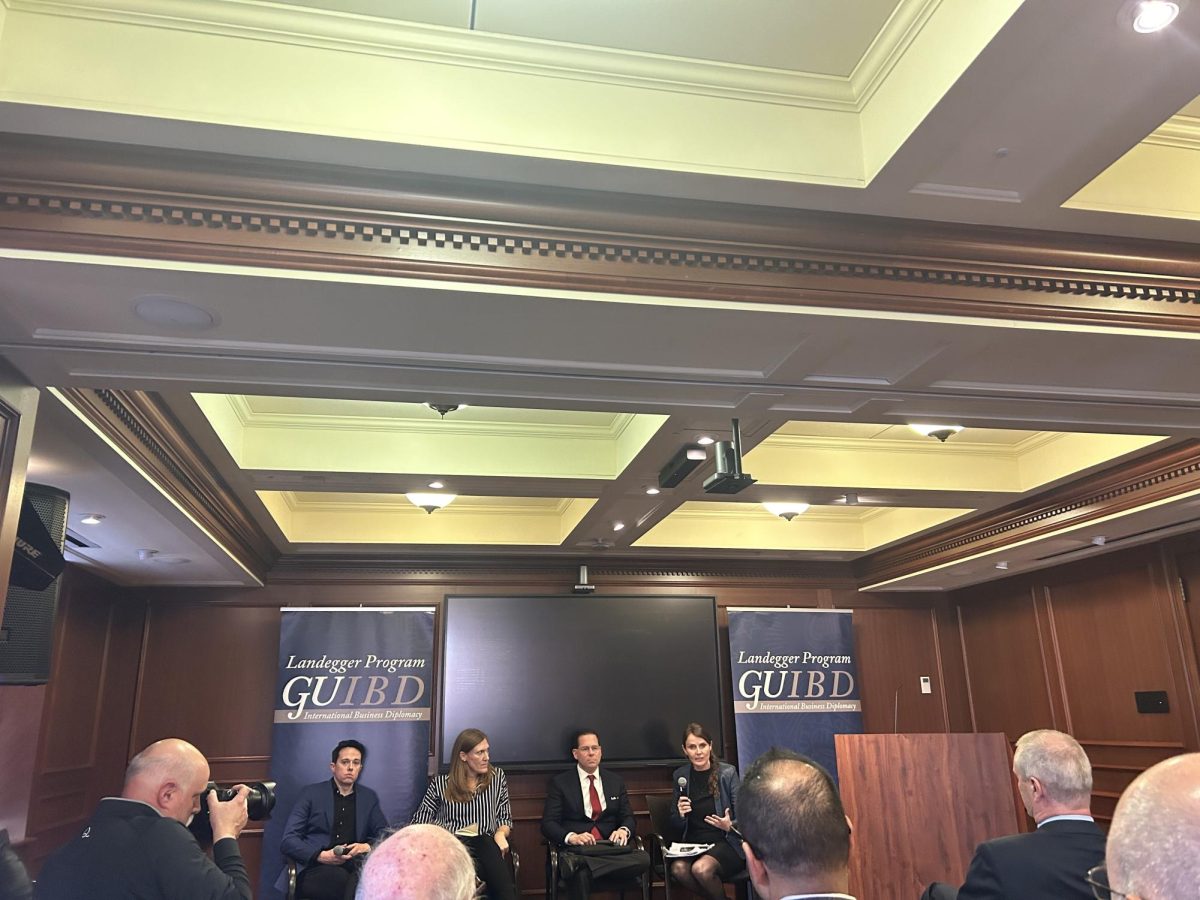A professor provided insight into the implications of Mexico’s 2024 presidential election in a conversation hosted by the Georgetown Americas Institute (GAI) Feb. 22.
Denise Dresser, a Mexican political scientist, writer and activist and professor of political science at the Instituto Tecnológico Autónomo de Mexico (ITAM) in Mexico City, headlined the event. At the discussion, which was moderated by Alejandro Werner and followed by a question and answer session, Dresser discussed how Mexico’s upcoming presidential election may prove to be an example of democratic backsliding and the reconstruction of dominant party rule.
Mexico’s general election will take place on June 2, 2024, where citizens have the opportunity to vote for a new president for the first time in six years. According to polls, many are unhappy with the current president, Andrés Manuel López Obrador.
Dresser critiqued López Obrador for increasing polarization, abusing his power and constantly defaming journalists.
“The Mexican president is using the bully pulpit to defame and to go after and discredit people who oppose him, people who are critics, people who have been consistently critical, is an abuse of power,” Dresser said at the event.
Dresser said she does not directly work on regulating cartels or the intricacy of local politics, but she has noticed increasing trends of the involvement of drug cartels in politics.
“Cartels do inject money into campaigns, they do help choose candidates, they veto candidates and they kill people who do not pact with them,” Dresser said.
Dresser’s newest book, “What’s Next? 20 Lessons to be a Citizen in a Country at Risk,” set to come out this April, discusses López Obrador’s presidency as an example of how an elected leader with popular support can erode democratic institutions, weaken checks and balances and alter the electoral system to ensure that opposition parties cannot compete on a level playing field.
Dresser said she has chosen not to be an expert on public insecurity because of the danger of the profession, as pursuing this career would put her in the direct target line of the very people who oppose her and therefore pose a risk to her safety.
“That’s the kind of thing that can get you killed,” she said at the event.
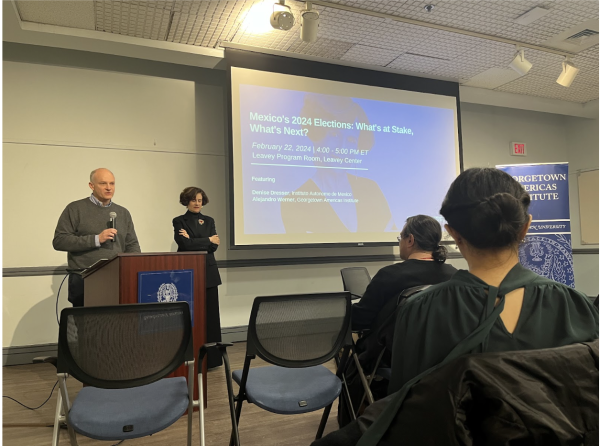
Dresser said throughout her presentation that she does not advocate for a unified government, as it reproduced the political and institutional conditions that make the polarization of the presidency come alive again in Mexico.
When asked about voting patterns in the 2024 Mexican congressional and presidential elections, Dresser was eager to respond.
“There are very specific state dynamics at play in this election. There is a national trend of MORENA probably winning most of the governorships,” she said.
Dresser discussed el Movimiento Ciudadano (The Citizens Movement), a left-leaning political party that has advocated for economic reconstruction via reduced government regulation.
“I used to think that Movimiento Ciudadano was a really interesting progressive alternative, but because Garcia, during the two weeks that he was a presidential candidate, erupted on the scene and was a very provocative force and raised the level of vote intention for Movimiento Ciudadano, once he got kicked out of the race and basically emulated the formula of orange tennis shoes, the TikToks, the dancing, the drinking, and now I think of betrayal to the party’s principles,” Dresser said.
Dresser finished her presentation by explaining why she has spent the last five years publicly denouncing López Obrador, saying she has done so to protect herself from the government that is taking away her rights and the rights of many others, such as their right to speech.
“The president has the right to describe me in any way that he chooses, like conservadora and encojida,” Dresser said. “He does not have the right to defame me, nor does he have the right to defame other journalists or other activists, other human rights defenders, or scientists or doctors or the existential enemies that he creates every morning because they are useful to his narrative of polarization.”








